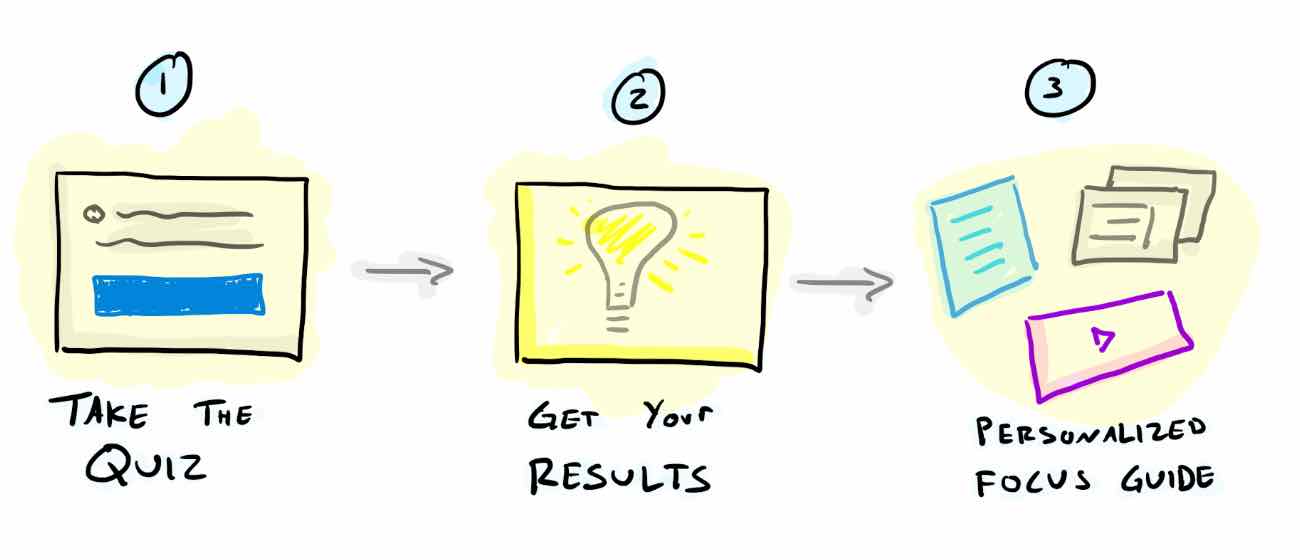Long-time readers here may remember back in early 2014 when I began going all-in with writing and podcasting around productivity, time management, and creativity.
Welp. Still here, still going all-in with this stuff. And over the years one thing I’ve discovered is that there are four main obstacles people face when it comes to being focused and productive. This is something I’ll be writing and sharing a lot more about in the coming months.
What’s great about these 4 obstacles is that they are very much fixable. What’s not so great is that often the symptoms of these obstacles look similar.
That’s one reason why so much productivity advice sucks (getting advice that diagnoses the wrong issue).
It’s also why folks will try a new productivity approach or app, but don’t see any progress or momentum is made. Again: they were merely treating a symptom and not the actual problem.
This is why we developed the all-new Focus Quiz.
This thing is amazing. It’s a FREE assessment that will diagnose your biggest obstacle to focus right now and help you find out how to solve it.

How it works
The assessment is free, easy, and takes just a few minutes.
You can use your personalized results to get insight into how to get a clear head amidst the overwhelming urgent issues of everyday life and make improvements to your focus, productivity, and time management.
- Take the Quiz (about 2-3 minutes)
- Get your results: find out where you are inside the Focus Flywheel and see what the biggest mistake you’re probably making right now is.
- Bonus: Along with your results, we’ll send you a personalized focus pathway to help you know what you should be doing now and what steps you need to take next.
You can take the assessment here.
